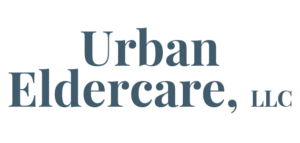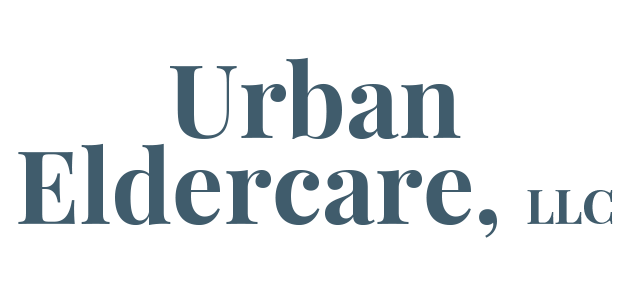 Are you caring for parents long distance?
Are you caring for parents long distance?
- Perhaps Dad had a stroke. You’ve been with him at the hospital, but now they say he needs to be discharged to home. You have to get back to your life. Who is going to watch after him to be sure he’s okay?
- Maybe you’ve come to visit and realize that Mom is not doing as well as it seems when you talk over Zoom. You worry about whether she is able to meet her needs while aging in place.
You are not alone with these worries. Roughly one out of seven family caregivers lives an hour or more away from an aging relative. In our practice, about 60% of our clients have family members who live far away. We are experts in long-distance caregiving.
Whether you are a midcareer professional with responsibilities to your job or business, a member of the sandwich generation with responsibilities to your growing children, or a retiree with your own health issues juggling the needs of elderly parents, we are here to help.
Let us be your eyes and ears. Our professional team’s education and experience provide the insights and practical tips needed to make sure your loved one is safe and leading a fulfilling life with as much independence as possible. You receive updates as often as you request, by phone, email, or video conferencing.
Give us a call to learn more: 917-514-8074.
Assessment and plan
The first step is to identify your relative’s strengths and those areas where they could use extra support. Our team is adept at working with even the most resistant older adults. They soon realize that we are an ally supporting their optimal aging and independence.
The assessment includes the following:
- Medical history. Any chronic conditions? Any active problems? How well are they being managed?
- Cognition. Do they have cognitive impairments such as memory loss, or problems with concentration, executive planning, emotional regulation, or judgment?
- Functional abilities. Their ability to perform activities of daily living, from cooking, cleaning, and managing their own finances, to more intimate tasks such as bathing and dressing.
- Mobility (balance and gait). Their ability to walk steadily and avoid falls.
- Driving and transportation. Are they able to safely get where they need to go? Is driving safety an issue? Do they have access to senior transportation?
- Loneliness. Social isolation is a big problem with older adults. And it’s not just mental health and mood disorders. Research has determined that loneliness has the same effect on physical health as smoking fifteen cigarettes a day. Older adults need to address issues of social engagement in order to live balanced lives and keep their cognition
- Emotional health. Studies show that as many as 13% of seniors experience major depression or anxiety. Social isolation is certainly a contributor, as are the many losses that can come with aging: Loss of health, loss of a spouse, friends moving away, loss of independence.
- A legal audit of important documents. Every adult needs to have an advance directive and to name financial and healthcare decision makers should they be unable to speak for themselves. In addition, paperwork should be drawn up to arrange for the dispersal of assets after passing (a living trust or a last will and testament).
- Social and financial resources. It’s important to understand what is available in terms of money and help from others so a plan can be developed that will fit within the time budget and finances of the client and their family.
We will discuss a summary of our findings and devise an action plan, depending on the client’s goals of care. This may include referrals to community programs, home-care providers, medical specialists, and estate-planning attorneys. Families have the option to hire us to implement the plan or to follow through on their own from afar.
Return to top
Aging in place
According to AARP, 77% of older adults wish to age in place. Based on the assessment, we develop a care plan that makes sure this option is available so your loved one can stay where they feel most comfortable: At home!
A plan for aging in place might address:
- We look at the safety of the home environment from the point of view of fall prevention and elder financial abuse. Depending on your relative’s abilities, we might make recommendations such as the following:
- Modifications or remodeling to prevent falls
- Telephone apps to block spam calls that might result in identity theft
- Special credit cards that allow shopping only at preauthorized stores and have a cap on the amount of each purchase
- Home care. Your family member’s functional abilities might mean that it’s wise to place caregivers in the home to make meals, do the laundry, help with bathing, or ensure that medications are taken as directed. Caregivers are available through our employment agency, Home Care Match. As an employment agency, we are able to attract educated and committed in-home caregivers who are top in their field. Or we can recommend reputable home-care agencies in the New York City area and provide oversight to be sure they are following the plan of care.
- Transportation and social engagement. Depending on your loved one’s interests, we can identify key activities and facilitate senior transportation
- Medical advocacy. Is the person you care for able to reliably follow through with the doctor’s recommendations? Are you being kept in the loop in terms of doctor appointments and their findings? Our care managers can take your relative to appointments and serve as a patient advocate, making sure specialists coordinate with each other and focus on your loved one’s goals of care. Conditions that are not well managed result in unnecessary hospitalizations and can pose a threat to aging in place.
Return to top
Caregiving consultations
Sometimes you just need someone to talk to, someone who understands the conflicting pressures of caring for an elderly parent while juggling the needs of your own professional and personal life.
We can arrange for regular or ad hoc meetings via phone or video conferencing to cover topics of concern to you:
- Senior housing. What are the options when an older adult can no longer live on their own? Costs? Programs to pay for care?
- Learn what to expect with your loved one’s medical conditions and what the treatment options are. We help with translating medical jargon. What is the likely progression of a disease? How do the various treatments affect quality of life? What are the risks and benefits?
- Strategies for coping with dementia. From wandering to repetitive questions, we can provide practical tips for managing difficult behaviors.
- Family conflict. Getting siblings and spouses all on the same page while distributing the responsibilities as equitably as possible.
- Work–life balance and personal issues. How to juggle feelings of responsibility to parents, your own family, and your work. How to repay the past without sacrificing the future. What if your relationship with your parent has always been strained? Perhaps a history of alcoholism, neglect, or abuse. How to protect yourself and stay authentic to your values.
Most sessions result in an action plan with recommendations for resources available online or in your community.
To learn more, give us a call at 917-514-8074.
Return to top
 Are you caring for parents long distance?
Are you caring for parents long distance?
